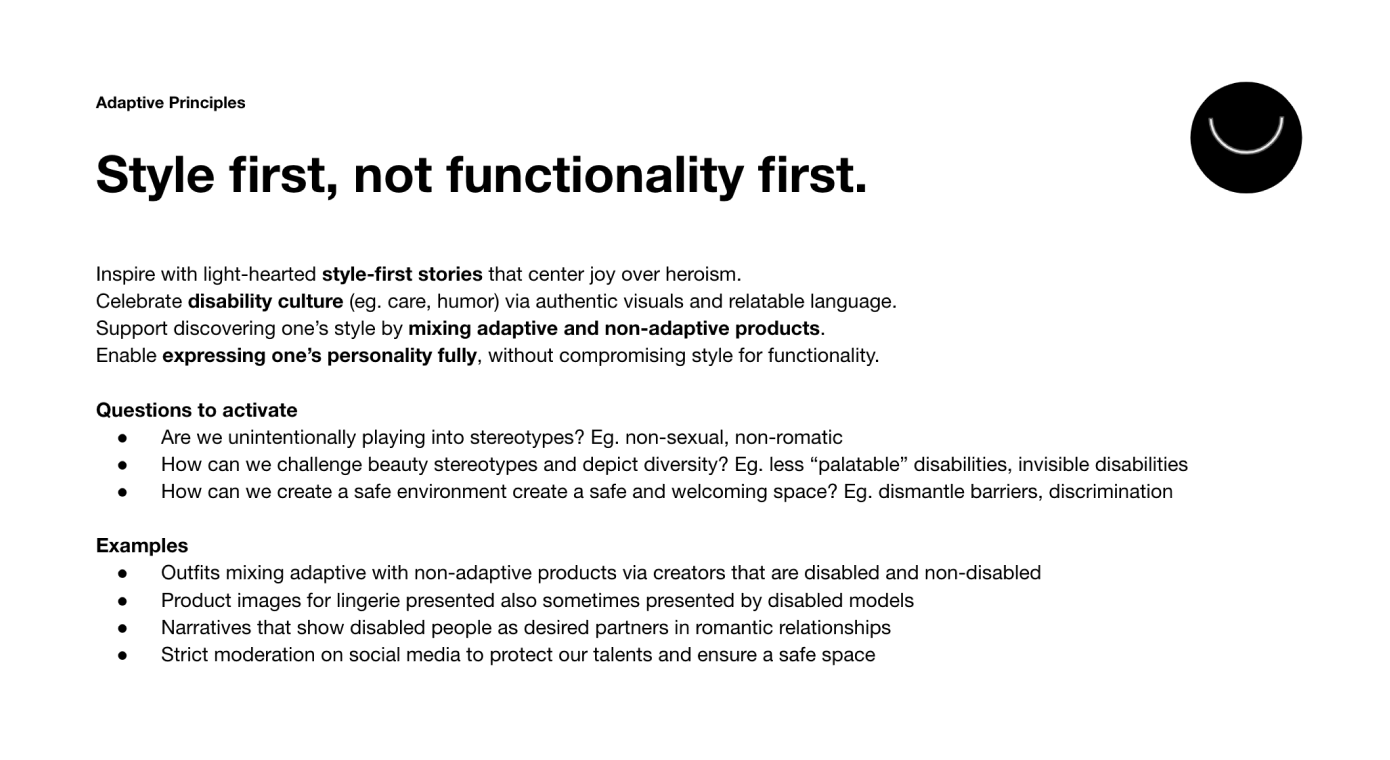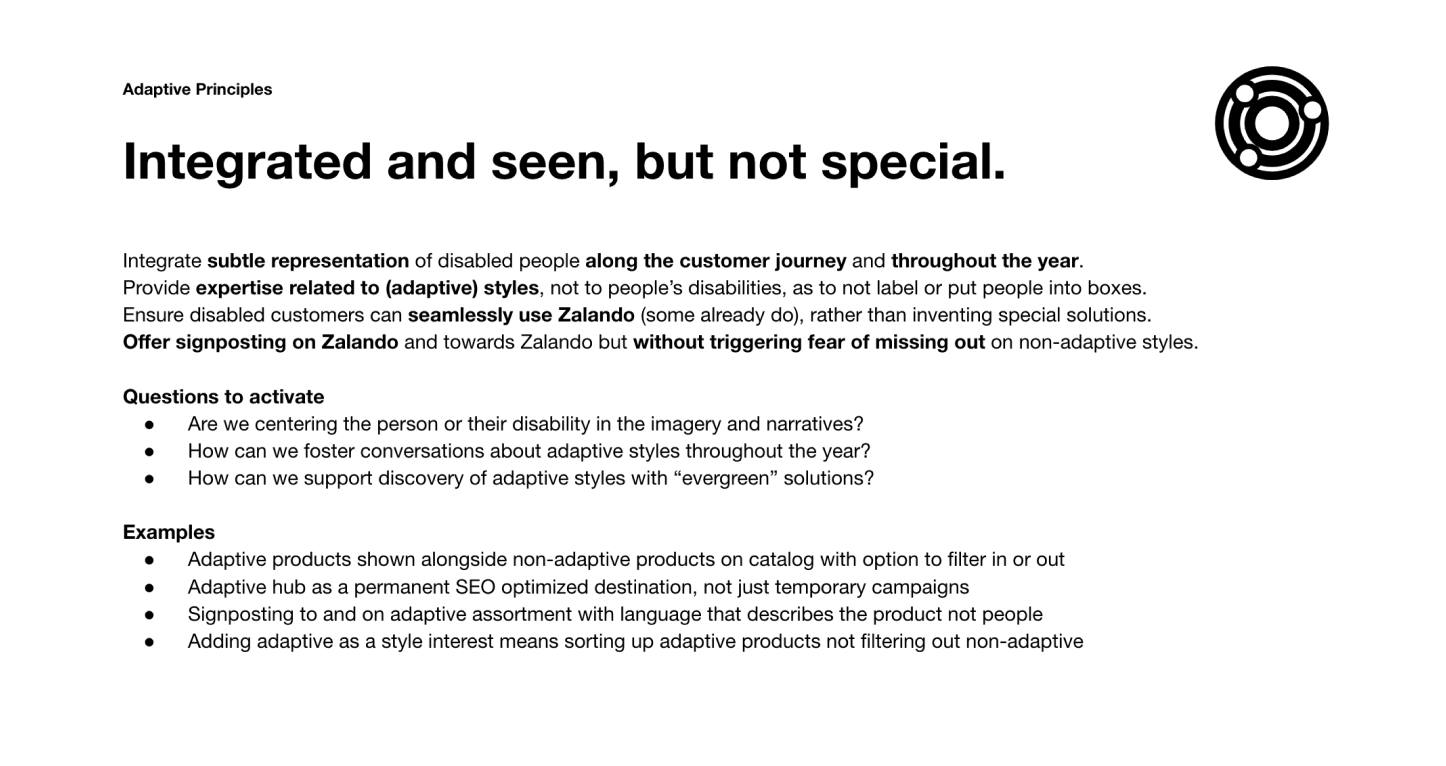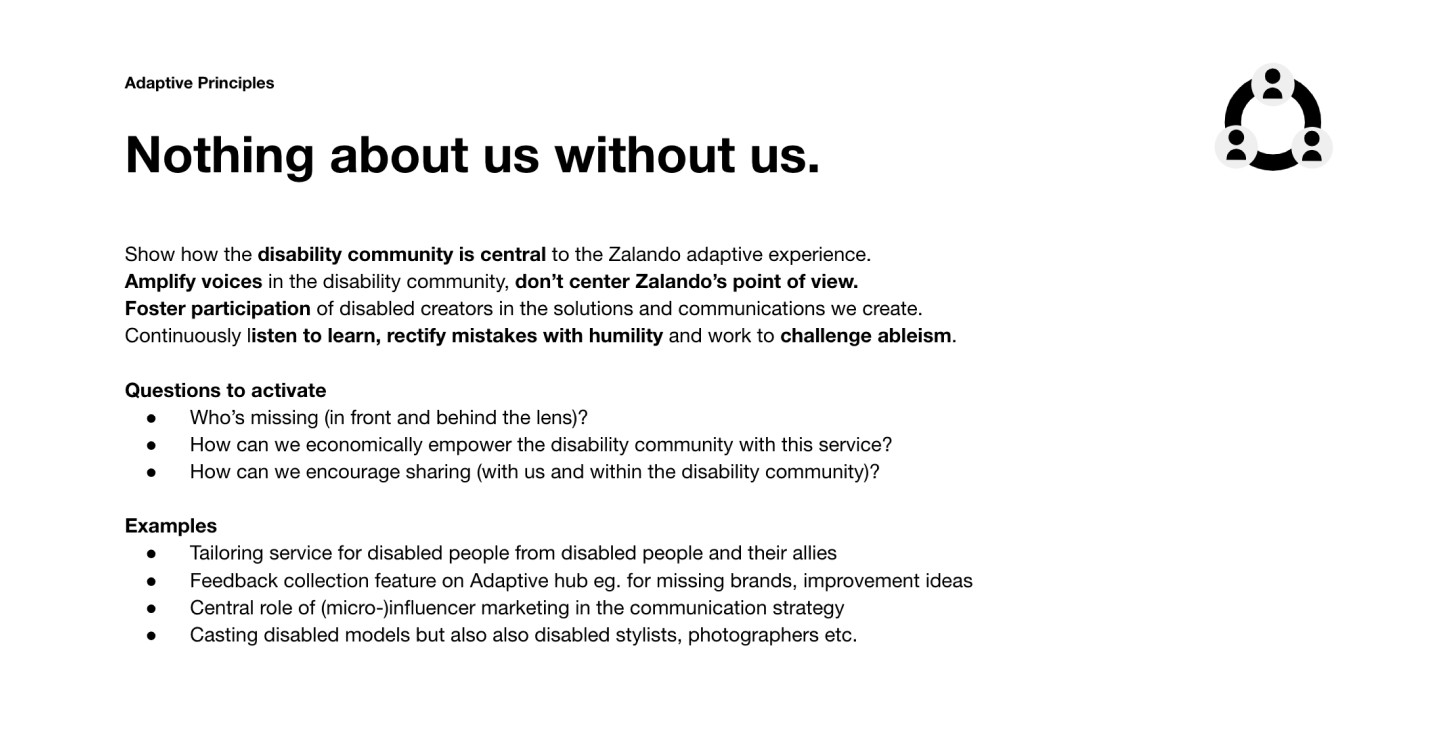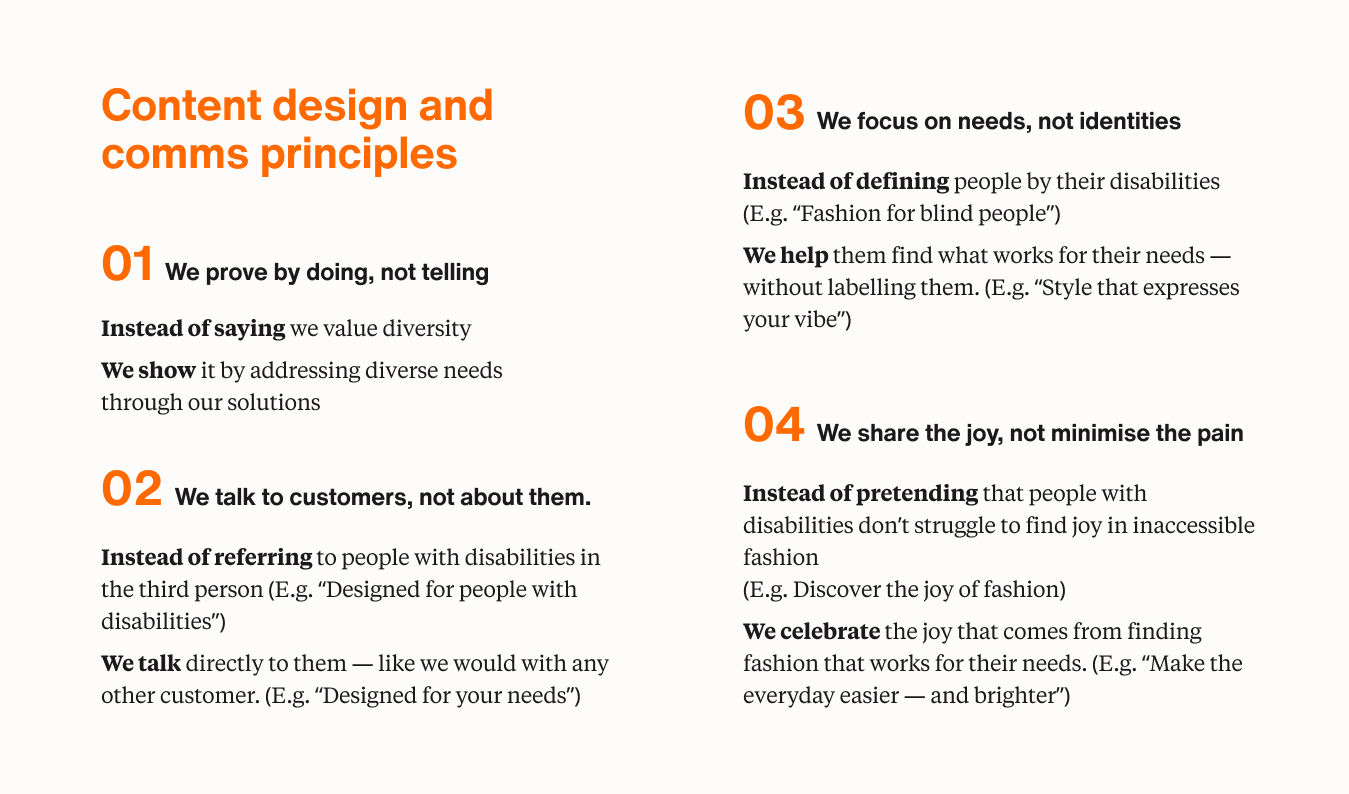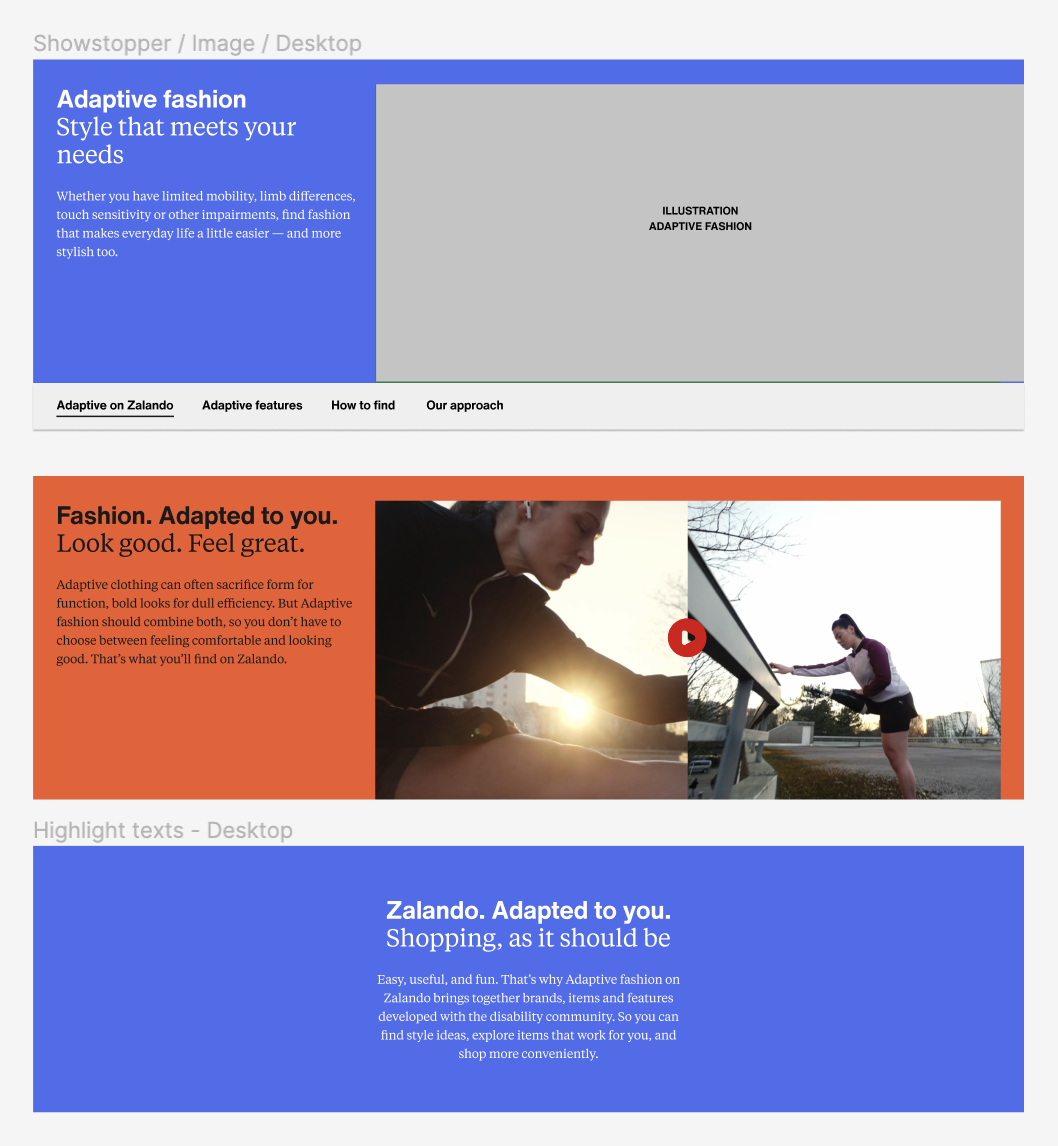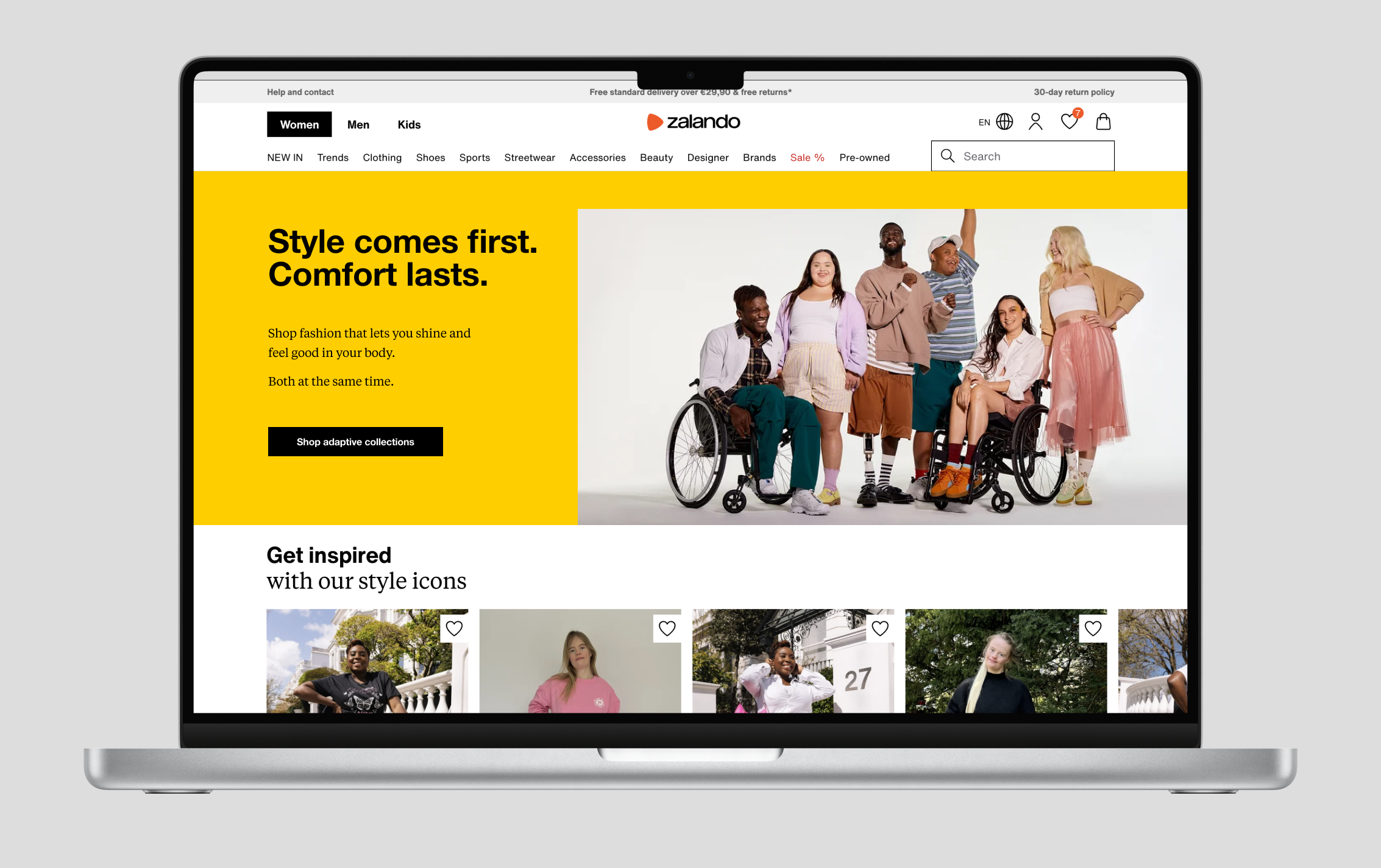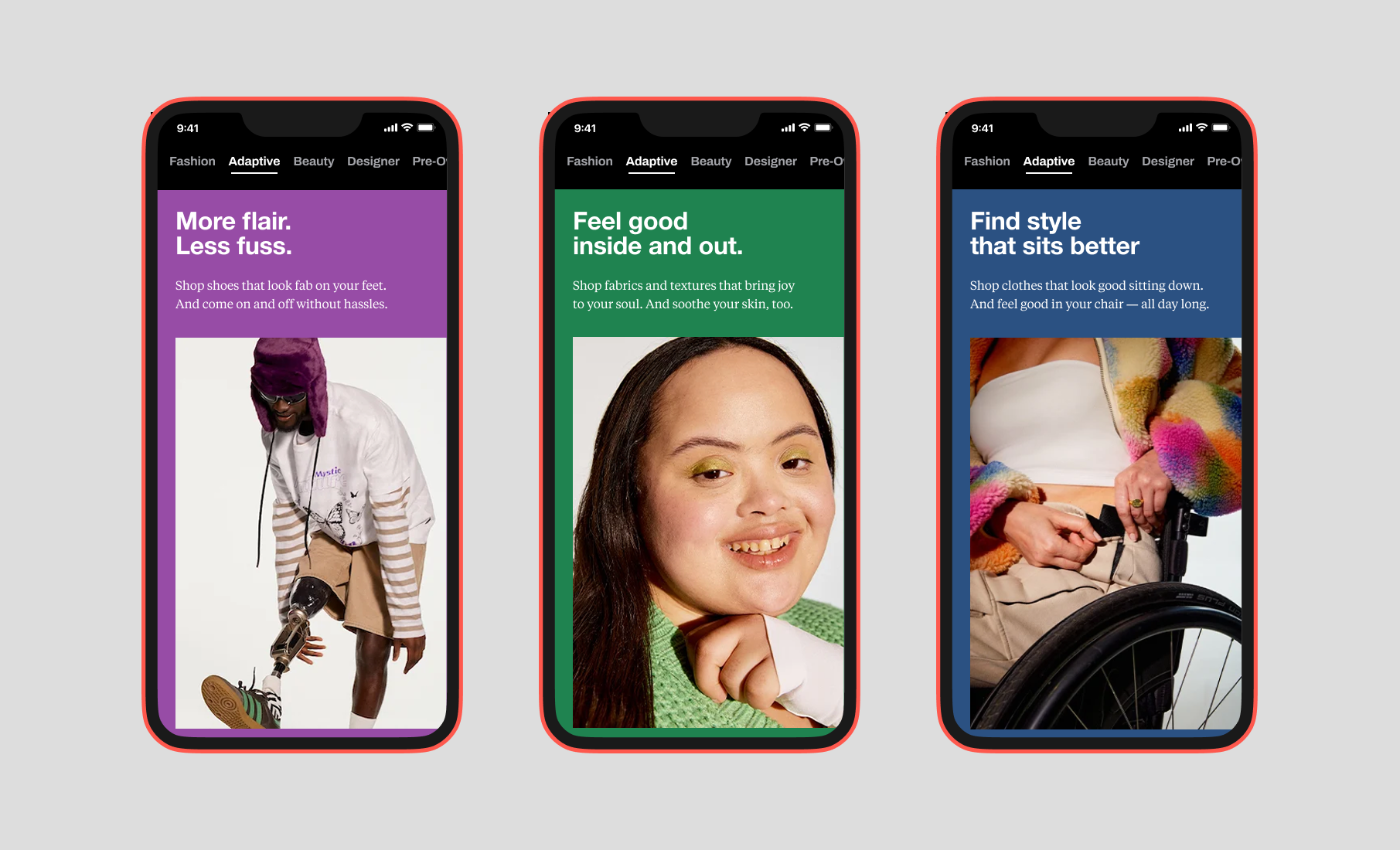How to design for real inclusion
Zalando Adaptive
The problem
Over 100 million Europeans live with disabilities or impairments.
And the fashion industry doesn't only ignore them — it actively excludes them.
Zalando wanted to change this.
Beginning with resesarch
We started by educating ourselves: talking to users, disabled-owned brands and disability inclusion consultants.
And distilled what we learnt into principles to bring everyone together from step zero .
Laying the foundations
We had to be clear on what we were offering — and why people should care.
Working with product marketing, I translated features into benefits, defining the proposition.
Talking with people, not talking at them
Sometimes, the desire to not offend can lead us to tiptoe around disability, or talk to people at a distance.
I developed comms principles to define how we'd talk to customers.
With respect for their needs, but without treating them as 'special'.
Writing. Rewriting. Repeating.
After the foundational work, I helped the writing team structure and craft our words, present to various teams, and iterate with feedback.
We did this until we pinned down what we needed to say — and how best to say it.
From ignorance to inclusion
Our structured approach, wide collaboration, and constant iteration brought us to a solution we could be proud of.
One that presented fashion as joyful and inclusive, solving everyday problems with style.
Setting up for scale
Finally, I created documentation covering everything — from our research to writing guidelines — to help make the entire org practice inclusivity.
Making a real impact
We launched the first phase in October 2022, and it quickly got us in the news, globally.
'... exceptional example of leadership and commitment to disability inclusion' - TIME magazine
'... game changing movement towards making adaptive products more accessible' - Forbes
More importantly, we received overwhelmingly positive feedback from the disability community, including our partners, creators, and, of course, our customers.






